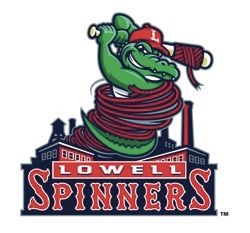 A decision on whether to pay up to $30 million on upgrades to LeLacheur Park, former home of the Lowell Spinners (Short-A; NY-Penn League), to house a Boston Red Sox-owned MiLB team relocating from Salem is looming–and it’s not looking great for the Sox.
A decision on whether to pay up to $30 million on upgrades to LeLacheur Park, former home of the Lowell Spinners (Short-A; NY-Penn League), to house a Boston Red Sox-owned MiLB team relocating from Salem is looming–and it’s not looking great for the Sox.
The game plan from the Red Sox when MLB downsized MiLB from 160 to 120 years was to let the Spinners down, lobby the city for LeLacheur Park improvements, and them move the Salem Red Sox to town. That LeLacheur Park would need a lot of work is not exactly a secret: it was built as a college/short-season ballpark, and it would need a big investment if Lowell wanted to pursue a return to pro baseball. How big, given the rising cost of materials and inflation, is beginning to be an alarming issue for a city facing its own economic issues. One incoming estimate from an incoming Lowell City Councilor now potentially sits north of $30 million; that’s up from the $10 million tossed about by city officials in late August 2021.
An investment of that size is unlikely to receive much support on the City Council, unless the Red Sox want to fund it. Already being discussed by the city is a sale or transfer to UMass Lowell–which also plays at LeLacheur Park–who could then address any lease with the Red Sox or another pro or summer-collegiate team. But it’s also hard to see UMass Lowell spending that sort of money on LeLacheur Park, either. The city already has been pitched by Drew Weber, the founder of the Lowell Spinners who now owns a Futures League team in nearby Nashua, to lease the ballpark as is for summer-collegiate play. From the Lowell Sun:
Earlier this year, the city hired an owner’s project manager, Jones Lang LaSalle Americas Inc., to oversee a number of physical enhancements at the stadium. The city also sought engineering and design services for an accelerated feasibility study to determine what improvements would be necessary to bring the stadium into compliance with the standards of Major League Baseball and the associated costs.
City Manager Donoghue was adamant that bringing back a professional team was the only way Lowell could continue to operate the stadium, which is also used by UMass Lowell.
The estimated costs of bringing the stadium back into MLB compliance haven’t been released yet.
The Red Sox took a calculated risk by taking control of the Lowell market from Spinners owner Dave Heller, who had previously been successful in bringing needed improvements to LeLacheur Park, such as the installation of LED lighting before it was mandated by MLB. We’ll see the true value of the Red Sox brand as Lowell councilors discuss spending tens of millions on LeLacheur Park, and we expect a decision to come in the first quarter of 2022.
And bringing pro baseball back to Lowell was already a big challenge. Geography, a summer-collegiate team makes sense, with Nashua and Pittsfield already in the Futures League. The inclusion of an MiLB team isa heavy lift on the travel front, no matter whether the team ends up at High-A or Low-A; the closest teams nearby in A ball are the Hudson Valley Renegades and Brooklyn Cyclones, some 200-220 miles away—which means a Red Sox team could be bumping up several times annually with the 250-mile airline requirement imposed by MLB. There would also be a geographic fit with the Frontier League’s footprint. So if the city does nothing, there’s a list of potential tenants out there.
RELATED STORIES: Lowell: Is pro baseball worth millions in ballpark upgrades?; Red Sox working to bring MiLB back to Lowell; Red Sox: We’ll fight to keep baseball in Lowell; Fight to Save Lowell Spinners Goes National; Contraction in Flux, as Lowell Spinners May Escape Dream League
